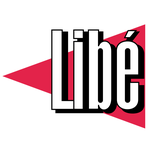The Legal Labyrinth of Pavel Durov: Telegram's Founder Faces French Justice
September 1, 2024, 6:05 am

Location: United Kingdom, England, London
Employees: 201-500
Founded date: 2011
Total raised: $1.33B
Pavel Durov, the enigmatic founder of Telegram, finds himself ensnared in a web of legal troubles in France. Arrested at Le Bourget Airport on August 24, 2024, Durov's journey through the French judicial system has become a spectacle, raising questions about digital privacy, accountability, and the role of technology in modern society.
Durov, a man known for his defiance against censorship and commitment to privacy, is now under scrutiny for allegations that could tarnish his legacy. The French authorities have accused him of complicity in serious crimes, including drug trafficking and facilitating illegal transactions through his messaging platform. These charges stem from his alleged failure to cooperate with law enforcement, painting him as a reluctant participant in a larger narrative of crime facilitated by technology.
The backdrop of this saga is a complex interplay of international relations and digital governance. Durov holds multiple citizenships, including Russian and French, which complicates his legal standing. His arrest has sparked discussions about the responsibilities of tech entrepreneurs in preventing misuse of their platforms. Critics argue that Durov, like other tech leaders, must bear some responsibility for the actions of users on Telegram. Supporters counter that holding him accountable for the actions of others is akin to blaming a car manufacturer for reckless driving.
The initial arrest was a dramatic affair. Durov was detained for nearly four days, during which he faced intense questioning from the National Cyber Unit and the National Fraud Bureau. The French judicial system allowed for a maximum detention period of 96 hours before a decision on his fate had to be made. After this period, he was placed under judicial supervision, a measure that allows him to remain free but under strict conditions.
The terms of his release are notable. Durov must reside at a court-designated address and report to the police twice a week. He is not under house arrest, which means he can continue his work in France. However, he is prohibited from leaving the country until the investigation concludes. This arrangement reflects a delicate balance between the presumption of innocence and the need for judicial oversight.
Durov's legal team has vehemently denied the charges, labeling them as absurd. They argue that it is unreasonable to hold him accountable for the actions of Telegram users. This defense echoes a broader debate in the tech industry about the limits of liability for platform owners. If Durov is found guilty, he could face up to ten years in prison, a fate that looms large over his future.
The implications of this case extend beyond Durov himself. It raises critical questions about the role of technology in society. As digital platforms become integral to communication, the lines between user responsibility and platform accountability blur. Durov's situation exemplifies the challenges faced by tech leaders in navigating the legal landscape while upholding their principles of privacy and freedom of expression.
Moreover, the French government's involvement adds another layer of complexity. Reports indicate that President Emmanuel Macron was briefed on Durov's situation, highlighting the political ramifications of the case. The intersection of technology and state security is a delicate dance, and Durov's connections with French intelligence agencies have not gone unnoticed. Allegations that he maintained communication with the General Directorate for Internal Security (DGSI) suggest a deeper relationship between his platform and state interests.
As the investigation unfolds, the fate of Telegram hangs in the balance. The platform has already faced scrutiny for its role in facilitating illegal activities. Durov's arrest could lead to increased pressure on Telegram to enhance its moderation practices and comply with regulatory demands. The tech community watches closely, as the outcome of this case may set a precedent for how digital platforms are governed in the future.
In the meantime, Durov remains a figure of intrigue. His public persona as a champion of free speech contrasts sharply with the legal challenges he faces. The irony is palpable: a man who built a platform on the promise of privacy and security now finds himself in a legal quagmire that questions those very principles.
The case of Pavel Durov is a microcosm of the larger struggle between innovation and regulation. As technology continues to evolve, so too must our understanding of accountability in the digital age. Durov's story serves as a cautionary tale for tech entrepreneurs navigating the treacherous waters of legal compliance and ethical responsibility.
In conclusion, the legal labyrinth surrounding Pavel Durov is far from over. As he navigates the complexities of the French judicial system, the implications of his case will resonate throughout the tech industry. The outcome may redefine the boundaries of responsibility for digital platforms and shape the future of online communication. For now, Durov remains a free man, but the specter of justice looms large, reminding us all of the delicate balance between freedom and accountability in the digital realm.
Durov, a man known for his defiance against censorship and commitment to privacy, is now under scrutiny for allegations that could tarnish his legacy. The French authorities have accused him of complicity in serious crimes, including drug trafficking and facilitating illegal transactions through his messaging platform. These charges stem from his alleged failure to cooperate with law enforcement, painting him as a reluctant participant in a larger narrative of crime facilitated by technology.
The backdrop of this saga is a complex interplay of international relations and digital governance. Durov holds multiple citizenships, including Russian and French, which complicates his legal standing. His arrest has sparked discussions about the responsibilities of tech entrepreneurs in preventing misuse of their platforms. Critics argue that Durov, like other tech leaders, must bear some responsibility for the actions of users on Telegram. Supporters counter that holding him accountable for the actions of others is akin to blaming a car manufacturer for reckless driving.
The initial arrest was a dramatic affair. Durov was detained for nearly four days, during which he faced intense questioning from the National Cyber Unit and the National Fraud Bureau. The French judicial system allowed for a maximum detention period of 96 hours before a decision on his fate had to be made. After this period, he was placed under judicial supervision, a measure that allows him to remain free but under strict conditions.
The terms of his release are notable. Durov must reside at a court-designated address and report to the police twice a week. He is not under house arrest, which means he can continue his work in France. However, he is prohibited from leaving the country until the investigation concludes. This arrangement reflects a delicate balance between the presumption of innocence and the need for judicial oversight.
Durov's legal team has vehemently denied the charges, labeling them as absurd. They argue that it is unreasonable to hold him accountable for the actions of Telegram users. This defense echoes a broader debate in the tech industry about the limits of liability for platform owners. If Durov is found guilty, he could face up to ten years in prison, a fate that looms large over his future.
The implications of this case extend beyond Durov himself. It raises critical questions about the role of technology in society. As digital platforms become integral to communication, the lines between user responsibility and platform accountability blur. Durov's situation exemplifies the challenges faced by tech leaders in navigating the legal landscape while upholding their principles of privacy and freedom of expression.
Moreover, the French government's involvement adds another layer of complexity. Reports indicate that President Emmanuel Macron was briefed on Durov's situation, highlighting the political ramifications of the case. The intersection of technology and state security is a delicate dance, and Durov's connections with French intelligence agencies have not gone unnoticed. Allegations that he maintained communication with the General Directorate for Internal Security (DGSI) suggest a deeper relationship between his platform and state interests.
As the investigation unfolds, the fate of Telegram hangs in the balance. The platform has already faced scrutiny for its role in facilitating illegal activities. Durov's arrest could lead to increased pressure on Telegram to enhance its moderation practices and comply with regulatory demands. The tech community watches closely, as the outcome of this case may set a precedent for how digital platforms are governed in the future.
In the meantime, Durov remains a figure of intrigue. His public persona as a champion of free speech contrasts sharply with the legal challenges he faces. The irony is palpable: a man who built a platform on the promise of privacy and security now finds himself in a legal quagmire that questions those very principles.
The case of Pavel Durov is a microcosm of the larger struggle between innovation and regulation. As technology continues to evolve, so too must our understanding of accountability in the digital age. Durov's story serves as a cautionary tale for tech entrepreneurs navigating the treacherous waters of legal compliance and ethical responsibility.
In conclusion, the legal labyrinth surrounding Pavel Durov is far from over. As he navigates the complexities of the French judicial system, the implications of his case will resonate throughout the tech industry. The outcome may redefine the boundaries of responsibility for digital platforms and shape the future of online communication. For now, Durov remains a free man, but the specter of justice looms large, reminding us all of the delicate balance between freedom and accountability in the digital realm.
